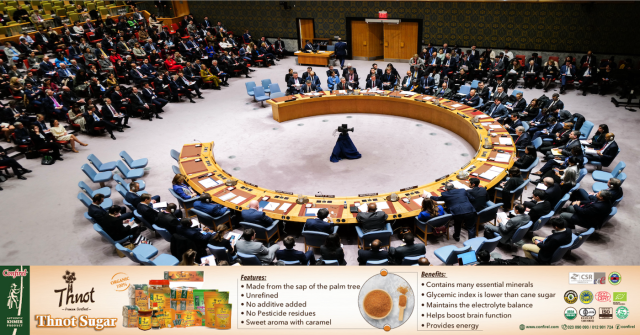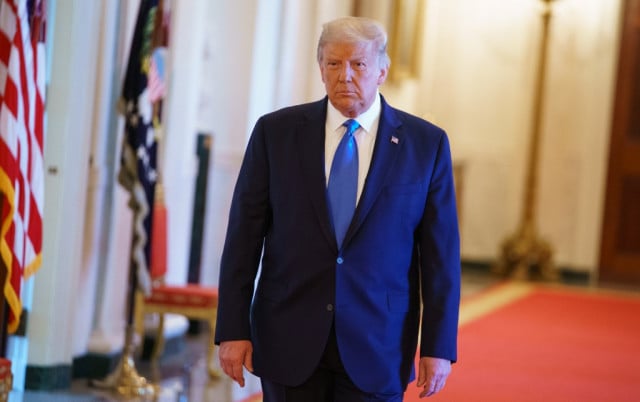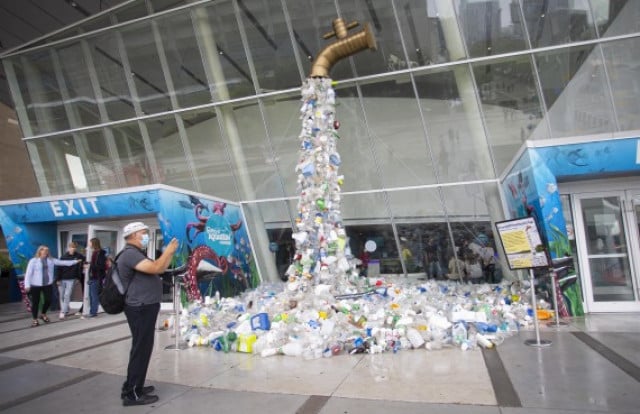Why Small States like Cambodia Should Be Concerned About Russia's Violation of International Law

- By Sokvy Rim
- April 6, 2024 10:10 AM
At the end of World War II in 1945, the United Nations was created along with six organs. The United Nations Security Council (UNSC) is known to be the most powerful, consisting of five permanent members—the US, China, Russia, United Kingdom, French and ten non-permanent members with a two year-term. UNSC has played an essential role in maintaining global peace and preventing an aggressor from destabilising the international system and violating international law.
For example, from 2006 to 2017, the UNSC placed and reinforced sanctions against North Korea for testing and developing nuclear weapons. Though the UNSC has its limitations, its sanctions make it difficult for the Pyongyang regime to achieve its nuclear development. Thus, it pushed North Korean leaders to seek realignment with the US and South Korea in 2019.
However, the current international system is not what it was in 2017, as the permanent member of the UNSC has started to violate international law and norms. On February 24, 2022, Russia invaded Ukraine, claiming that it was part of Russia. Regardless of the historical relations between Russia and Ukraine, Russia resorting to using military force against Ukraine is considered to violate international law and norms.
As it was stated in "Article 2, paragraph 4 of the Charter of the United Nations — an obligation to refrain from the threat or use of force against the territorial integrity or political independence of any State" Until today, Russian troops remained stationed in Ukraine and conducted massacres in the occupied region. As of November 2023, at least around 10,000 Ukrainian civilians were killed because of Russia’s long-range missiles and abandoned ordnance blasts. Russia has used its role as a permanent member of the UNSC to protect its interests by vetoing the draft resolution aimed at ending Russia's invasion of Ukraine.
After being deeply involved in a war with Ukraine for two years, Russia has sought to improve relations with North Korea by providing diplomatic support, food, and fuel to North Korea in exchange for arms support in its war in Ukraine. Russia has now expressed full diplomatic support to North Korea, a country under many sanctions of the UNSC and most of those sanctions were supported by Russia. In March 2024, Russia vetoed the renewal of the panel of UN experts, whose leading role is to monitor the UN sanction against North Korea. Without the watchdog, it is easier for North Korea to exploit the loophole and violate the UN sanctions to earn hard currency for developing its nuclear weapon. The primary motivation behind Russia's decision is that the Kremlin has been involved in doing business with North Korea, such as transporting fuel and food to North Korea, while importing arms and ammunition from North Korea. Russia’s violation of the UNSC sanctions against North Korea will be concealed as the UN expert group will be disbanded by the end of April. Russia's action has affected international stability and undermined the international law and norms embedded in the UN Charter.
The erosion of international law and norms could have a severe implication for small states, which depend on international law and norms to protect their national interest and security. While there are flaws regarding implementing international law and standards, small states are better off with those rules and norms. It can be seen that following Russia's invasion of Ukraine, most countries in Southeast Asia have vehemently opposed Russia's action, regardless of their long diplomatic relations with the Kremlin. For instance, in February 2023, most Southeast Asian countries voted to support the resolution of the United Nations General Assembly (UNGA) to condemn Russia, while Laos and Vietnam voted to abstain. This reflects that Russia’s action has raised concerns about the corrosion of international laws. As of February 2022, foreign ministers of ASEAN released a statement expressing “deep concern over the evolving situation and armed hostilities in Ukraine". As a result, ASEAN has voiced support and deepened its relations with Ukraine. More importantly, Ukraine Foreign Minister Dmytro Kuleba was invited by ASEAN to participate in the ASEAN Summit in Phnom Penh in 2022 and sign the instrument of accession to the Treaty of Amity and Cooperation in Southeast Asia. TAC is embedded in respecting party members' sovereignty, territorial integrity, and national identity. ASEAN’s engagement with Ukraine at a time when Russia invaded it indicates the bloc’s commitment to respect the territorial integrity and sovereignty of each state, which is embedded in the UN charter.
Lacking support from other countries, such as the Southeast Asian region, and being exhausted from the prolonged war have been the main factors pushing Russia to pursue realignment with North Korea, a hermit kingdom known for testing missiles, kidnapping, and violating human rights. As of February 2024, it was reported that North Korea provided around 6,700 containers storing millions of munitions and more than three million 152mm artillery shells. Recently, North Korean-made short-range ballistic missiles were identified to be used by Russia against Ukraine.
Despite the good relations between the two countries, the Cambodian government has been vocal against Russia's violation of international law. In addition to sponsoring the UN’s resolution against Russia, Cambodia has unilaterally condemned Russia. Cambodian former Prime Minister Hun Sen reiterated that Russia’s "act of aggression is unacceptable for Cambodia" and raised concerns that " if any country acts like this on Cambodia, who does Cambodia have to depend on?" Despite the war continuing for over two years, Cambodia has maintained its firm stance against Russia's war in Ukraine. Cambodia's voice against Russia reflects Cambodia's concern about eroding the international law and norms, which Russia has been using to serve their national interest at the expense of global stability and norms.
In addition, the Cambodian government has adhered to international law and norms by expressing full support to the UN sanctions against the Pyongyang regime. This can be exemplified by the effort of the Cambodian government to shut down various North Korean businesses in Cambodia; one well-known among those is a $24 million Angkor Panorama Museum in Siem Reap, depicting a painted picture of Cambodia’s history during the Angkor Empire. The Museum was invested under the Build-Operate-Transfer (BOT) model by the North Korean regime. It was supposed to be transferred to the Cambodian government after operating the Museum for 20 years. However, Cambodia shut down the Museum in 2020 to comply with the UN sanctions against the North Korean regime for developing missile and nuclear weapons to threaten its neighbouring countries. This reflects the Cambodian government’s willingness to adhere to international law. Cambodia will maintain its stance on North Korea regardless of the North Korea sanctions monitor will dismember by the end of this month. It was reiterated by Cambodia’s former Prime Minister Hun Sen that “our official position is that we strongly oppose the use of force or the threat of using force against another country in international relations”.
Overall, Russia’s action has grave implications for international laws and has destabilised the global system, particularly by invading its neighbouring country and dismantling the expert group to monitor sanctions against North Korea. Without the North Korea sanctions monitor, Russia will be able to conceal its business and arms trade with North Korea. Russia’s action indicates that it is trying to hide its future violation of international law and the UN sanctions against North Korea. While the scale of the breach is unknown, it will have significant repercussions on the global systems.
Rim Sokvy is a researcher based in Phnom Penh. His research focuses on Cambodia's foreign policy and engagement with ASEAN and East Asian countries.















